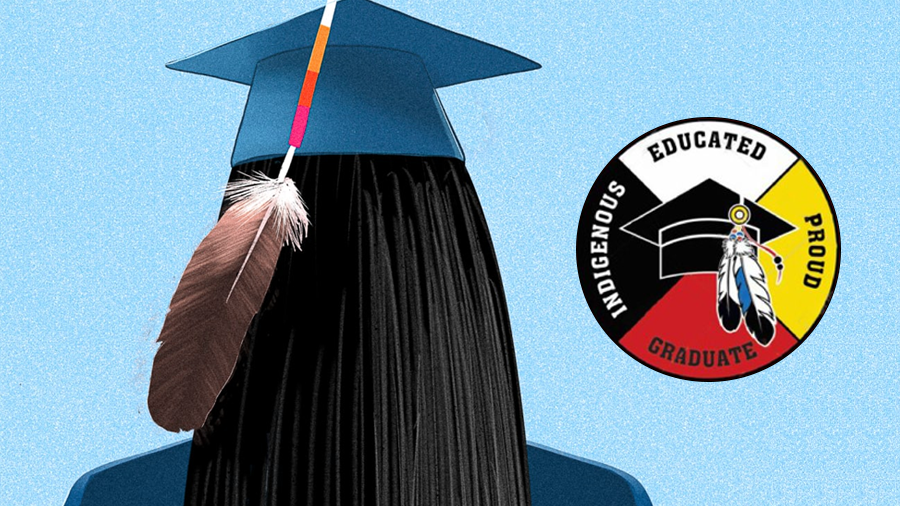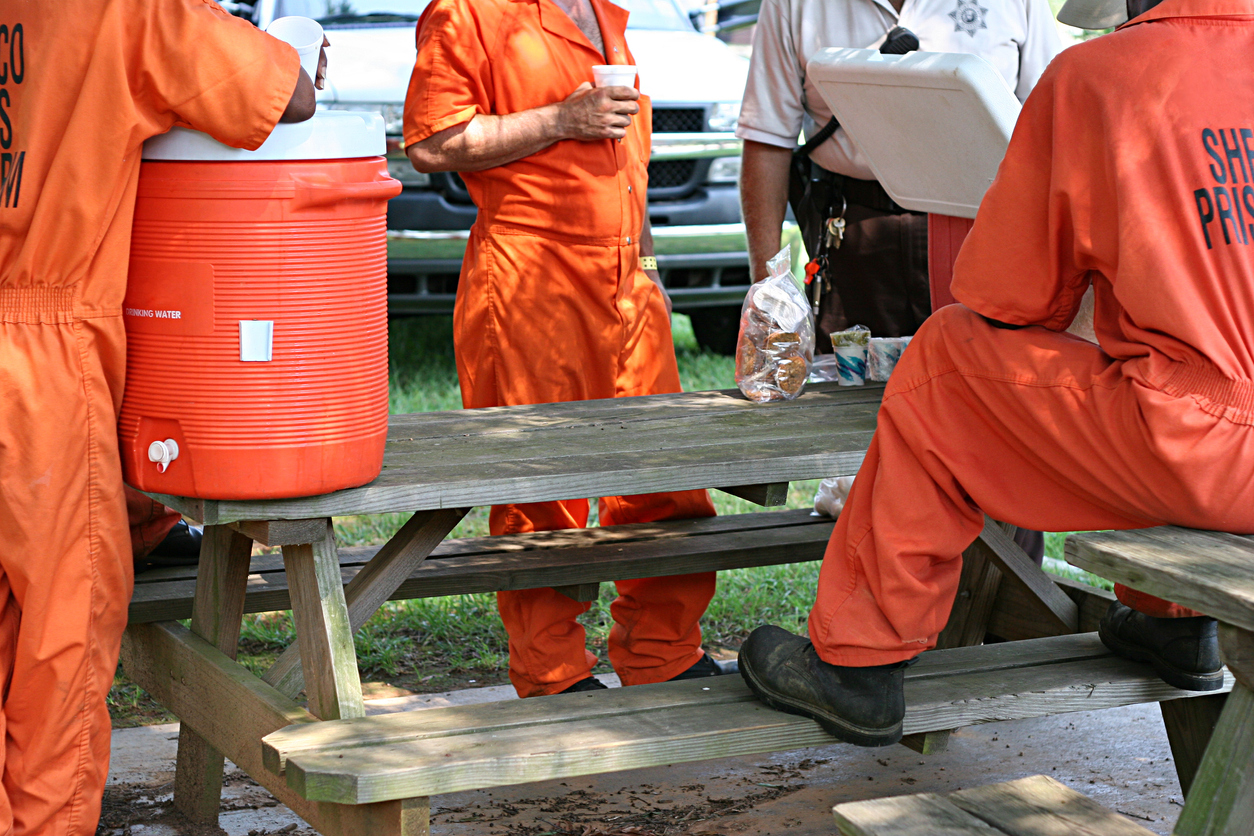Unlocking Potential: Finding Empowerment in Education
“You either walk inside your story and own it or you stand outside your story and hustle for your worthiness.” – Brene Brown
Continuous learning is one of Televerde’s core values and a vital part of our company culture. Over the years many women working for Televerde have achieved academic milestones they never imagined were possible, earning advanced degrees and gaining the knowledge and skills to propel their careers forward. One of the latest of our academic all-stars is Kathleen B., a sales development representative who has been working with Televerde for seven years.
Kathleen was recently accepted into the master’s program at Arizona State University’s (ASU) Hugh Downs School of Communication. Impressively, she already has an associate degree from Rio Salado College, an associate degree from Ashland University, and a Bachelor of Arts degree in Communication Studies under her belt, all three of which she earned while incarcerated.
Kathleen’s story is not just one of achievements, but also of tenacity and perseverance. We sat down with Kathleen and asked her to tell us all about her passion for education, how she accomplished so much while incarcerated, and what education means to her as a Native American woman. Read on to learn more about Kathleen and how she plans to put her education to great use in the future.
What inspired you to pursue higher education, particularly under such challenging circumstances?
I decided to pursue higher education because something really needed to change in my life, and advancing my education would spark a better understanding of the world and allow me to develop both personally and intellectually. I am a huge believer in each woman having the power to make their own way, no matter how they decide to use their energy. Coming to work at Televerde and being a part of some of our company’s most complex programs helped me to build my potential, resilience, and desire for greater achievement. This self-conditioning coupled with plenty of support behind me showed me that it doesn’t matter where a person comes from or what they have done, everyone has the potential to achieve anything they set their mind to.
Describe a moment that tested your resolve to continue your education in prison and how you overcame it.
There were several personal experiences throughout my seven years that tested my resolve and the easiest thing a person can do is give up. For me, giving up was no longer an option because many years of my life were dedicated to taking the easy way out or thinking that hard work was not the way to be successful. Recognizing that every failure, every mistake, every uncertain moment in my life was simply a new opportunity to achieve something great has been critical to my drive and success.
Each time a new challenge or obstacle crossed my path, I asked myself “What are you going to do about it and how are you going to get the result you want?” And like magic, each challenge and obstacle began to seem smaller than the last one. This mindset has created the foundation for me achieving everything I have while incarcerated.
How has your Native American heritage influenced your educational pursuits and personal growth during incarceration?
From my own experience living on the reservation, and from what I’ve learned through research, I know that there aren’t many Native Americans who pursue higher education. Whether by choice or by circumstance, it just isn’t common in these communities for people to go to college.
According to the U.S. Census’s American Community Survey, in 2021 only one percent of the U.S. population identified as American Indian or Alaskan Native. Among American Indian or Alaskan Native residents aged 25 or over, only 15.4 percent had earned a bachelor’s degree or higher. For context, the overall national rate is 32.9 percent.
Learning those statistics made me want to be a force for change, and that could only start by me developing an internal commitment to myself to do more and want more, and not settle for anything less than that. My parents are both brilliant, educated people with advanced degrees, and their success and strength are my blueprint for success. I want to show my community (Native America) what is possible and be able to put myself in a position to help more Native American people expand their horizons.
Was there an unexpected book, person, or event inside the prison that significantly shaped your academic or personal journey?
As someone studying communication, watching Oprah Winfrey’s 2018 University of Southern California Annenberg commencement speech struck a chord for me. Addressing the School for Communication and Journalism, she perfectly explained the impact that this field of study and the people who pursue it can have on the world. It was deeply inspiring, and it made me want to learn more about Oprah and her journey.
She grew up in the 1950s and she went through some traumatic things in her youth. Despite that pain and many challenges, she went on to become a media mogul and a billionaire. She wasn’t weighed down by her pain and trauma, instead using it to catapult herself into a different, successful direction.
As someone with my own struggles and a self-destructive past, hearing Oprah’s speech and learning about her journey showed me that no level of success is off-limits and that we can put our past behind us and continue to grow. She inspired me to continue using my negative experiences as motivation to achieve positive outcomes.
With your release approaching, how do you envision using your education to impact your community or the world around you?
In that same speech at USC, one of Oprah’s quotes was “Everybody has a calling. Your real job in life is to figure out why you are here and get about the business of doing it”. I’m not proud of the choices I’ve made as a daughter, mother, and sister, but at the end of every day, I own each choice, each thought, and each experience, because they are a part of my story, and my story is powerful. The goal is to inspire others to reflect on the person they are and how they can get about the business of their calling.
When I leave here, my goal is to contribute to the work at the Arizona governor’s office and put my communications degree to use to help and empower my community. I want to be able to tell my story, and I want to help both Native American people and incarcerated people find opportunities to attain the skills and level of education that I have. The resources are out there, but they are limited and not as well-known or as accessible as they could be, and I want to change that.
Mass incarceration is a growing problem, and it’s an issue that I’m passionate about. We need more systems in place to help make sure people don’t end up in prison in the first place, but ensuring that people don’t return to prison after they’re released is equally important. One of my biggest goals, and something I will advocate for, is ensuring that as many people as possible in Arizona state correctional facilities are given opportunities like the those I had available to me.
Share a hobby or interest you developed in prison that might surprise people.
I’m not sure if it will be surprising, but I’ve developed a keen interest in learning about law and policy.
It is important for each person to understand their rights and protections. It is even more important that each person use their voice to advocate for themselves and for others who may not know where to turn. Learning more about the law and policy has also given me the opportunity to engage in meaningful intellectual pursuits that will ultimately help me prepare for my new journey.
What unconventional piece of advice would you give to others who are pursuing their education in challenging environments?
This advice may not be unconventional, but it’s the best advice I have to give: Don’t ever give up! The end goal of pursuing education, or anything you want to achieve, is to make things better for yourself. It is something only you have the power to do. People will say that their motivations are a variety of things, but it all starts within yourself; truly believing you have the potential to achieve anything. There may be people who discourage you, intentionally or unintentionally, but remember that you are on the right path and that you are the only person who can set the limits of your potential.
Always remember that when you rise, you will see that others are rising with you, whether that be your people, family, or friends. You will see that each person in your orbit has the same goal, which is to see you use your potential and strength to make a difference in the world.
It’s easy to become discouraged when you are incarcerated or in a tough situation or environment, but the key is to learn from every mistake and understand that your mistakes are only designed to push you to make a positive impact on the world.
There is no time limit on success, and only you can decide how much time you need to become part of the solution.
If you could collaborate with anyone in the world on a project after your graduation, who would it be and why?
If I could collaborate with anyone in the world, it would be Jamie Dimon, JP Morgan Chase CEO. The project would be to educate the world on the inequities that Native American people and the incarcerated population face. Jamie Dimon is one of the most influential figures in our country and is a skilled, outspoken, and savvy business leader with a deep understanding of important social and economic issues. He is not afraid to speak up about the inequities that certain communities face, whether people agree with him or not.
In 2018, Dimon contributed an opinion piece in the Washington Post in which he argued that the United States needed to do more to help individuals who are incarcerated and that it was a business responsibility to contribute to reentry, employment, and job training for those of us who have been incarcerated. He was a strong advocate for congress to pass the First Step Act which was a bipartisan criminal justice reform bill. In 2019, Dimon announced that JP Morgan Chase would invest $30 billion dollars to promote DEI efforts in minority communities and recognized the need to address historical injustices and systemic barriers Native Americans face when it comes to economic opportunity.


